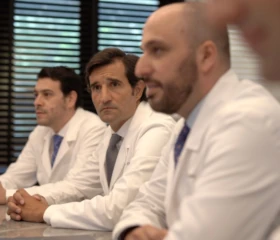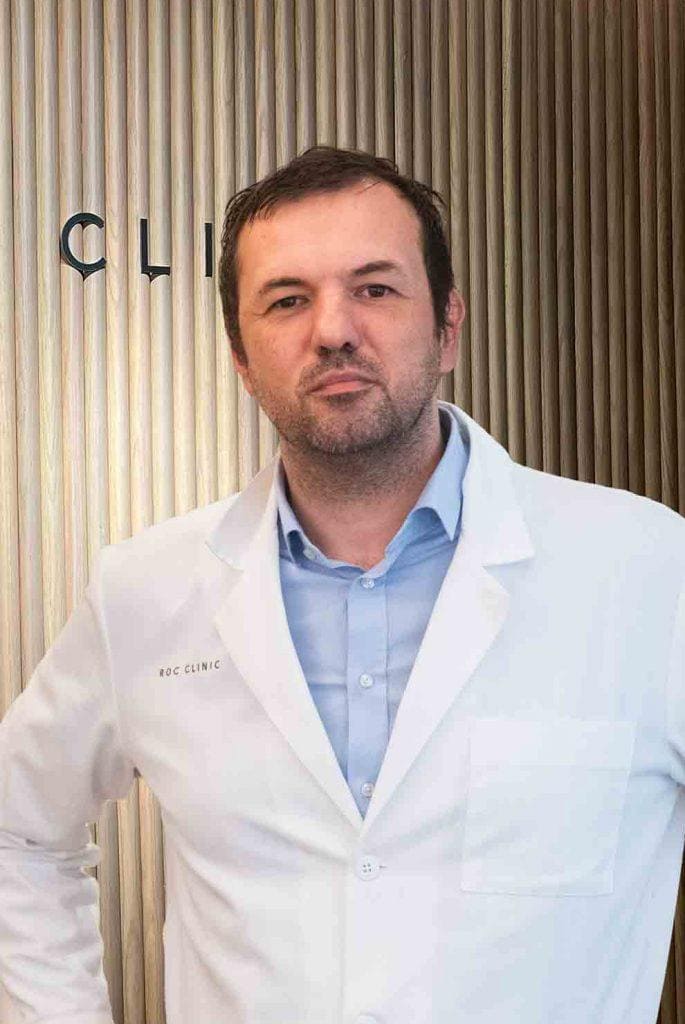Diagnosis Testosterone Deficiency
The physician must find the cause of the testosterone deficiency in order to apply the appropriate treatment.
The diagnosis of hypogonadism is made by a combination of two blood tests in which the following are found low testosterone low testosterone values together with symptoms of androgen deprivation.
- Super-specialized urologists
- Personalized treatment
- Minimally invasive approach
- More than 16,000 patients successfully treated
Diagnosis
Early detection of hypoganodism in children can help prevent late pubertal problems. Early diagnosis and treatment in adults offers better protection against osteoporosis and related conditions.
- Clinical interview: For the diagnosis of testosterone deficiency, a clinical interview with an andrologist should be conducted to investigate the signs and symptoms that may lead to the suspicion of hypogandrogenism, evaluate personal history that may be related and perform a physical examination to observe whether sexual development, such as pubic hair, muscle mass and testicular size, is consistent with age.
- Laboratory study: Testosterone levels in the blood will be tested. Because these levels vary throughout the day and are generally higher in the morning, blood tests should be done before 10:00 a.m., on an empty stomach, and possibly over more than one day. In addition, the following tests can be performed: blood count, lipid profile, blood glucose, hormone profile, thyroid function, kidney and liver function, prostate pathology. If the results confirm low testosterone levels, additional tests are performed to determine if the cause is a testicular disorder or pituitary abnormality. These tests may include hormone analysis, semen analysis, pituitary imaging, genetic studies, testicular biopsy.
- Validated questionnaires: It is advisable to use validated questionnaires to collect as much information as possible. They help to establish as objectively as possible the severity of the pathology and its effect on the individual.
The presence of symptoms of hypogonadism without analytical alteration is not an indication for treatment, since multiple diseases can produce very similar symptoms, so it is not reasonable to treat the disease with a normal blood test. Furthermore, testosterone has a positive clinical effect even in people with normal testosterone levels, which subsequently decreases. Given the inhibition of the hypothalamic-pituitary-gonadal axis produced by testosterone treatment and the short duration of improvement produced by testosterone intake, its use without indication is not recommended at all.
It should be noted that the cutoff point for what is considered low testosterone changes depending on each symptom and possibly depending on the time of life. It is generally accepted that below 8 nmol testosterone levels are low and supplementation is advisable. Between 8 and 12 nmol is a gray zone, where some men may have testosterone deficiency syndrome and others may not. Above 12 nmol there is no hypogonadism. However, some men, especially young men, may begin to notice TDS with testosterone levels below 15 nmol. It is accepted that above that figure there is no androgen deficiency.
Therefore, in order to reach the diagnosis it is necessary to have symptoms and two analytical tests with low testosterone levels. In these determinations it is important to analyze not only testosterone but also other parameters such as SHBG, prolactin, LH, FSH (if there is a desire for offspring), PSA, liver profile, hemogram and bone mineral density.
Based on these values, the existence or not of hypogonadism is diagnosed, the level where the problem occurs (cerebral or testicular), the cause and the factors that may be facilitating it.
They ask us in the Consultation
Can I have a sexual problem due to low testosterone?
Yes. Men with low testosterone are more at risk for low sex drive and erection problems. Some studies also point out that low testosterone may increase the risk of penile incurvation.
How do I know if I have low testosterone?
It is very easy. With a blood test (fasting and in the morning) we can study the state of the hormonal axis that regulates testosterone and androgens.
What happens if I take testosterone without needing it?
It is not recommended. It will cause you to stop producing testosterone on your own and become dependent on the medication. If you need testosterone, it is a very safe and effective medication; but taking it without needing it is a mistake.
How is testosterone taken?
Currently, in Spain, the best alternative is a testosterone gel that is applied every morning on the skin and, after some time, we can proceed to injectable testosterone.
Team of the Testosterone Deficiency Unit
Newsof ROC Clinic on Testosterone Deficiency
Research
Current management of stage T1 renal cell carcinoma in Spain: Results of a multicenter national registry.


 +34 912 627 104
+34 912 627 104 Contact
Contact






